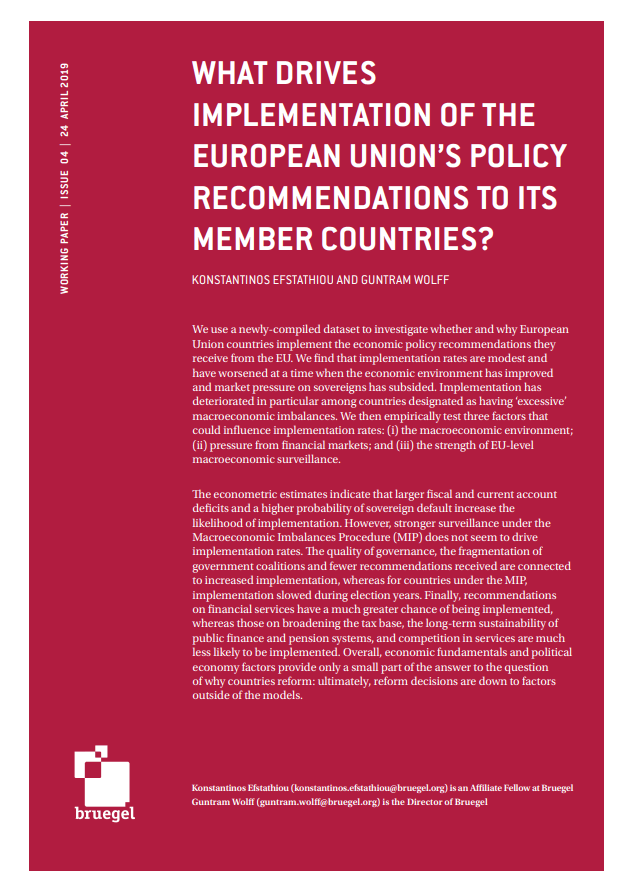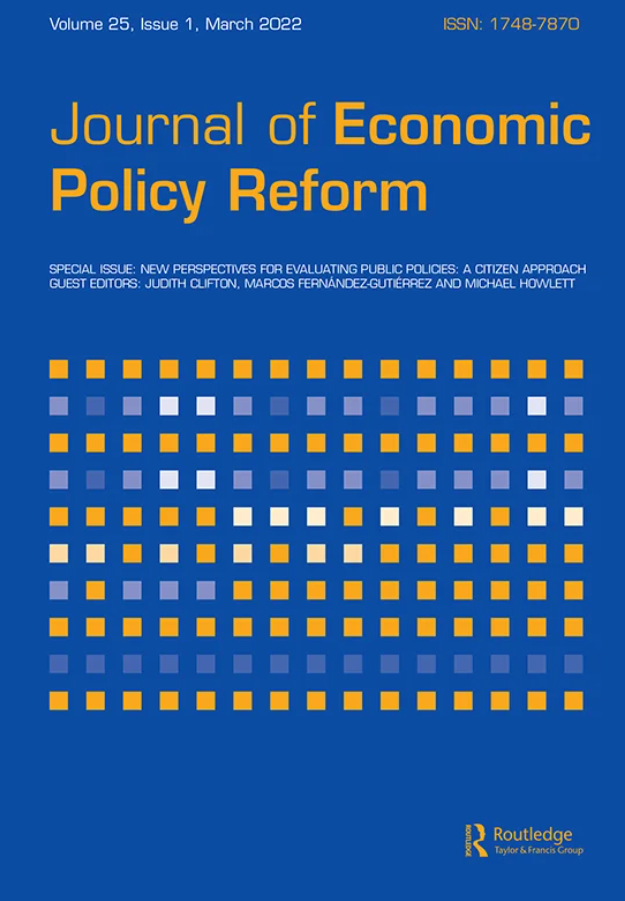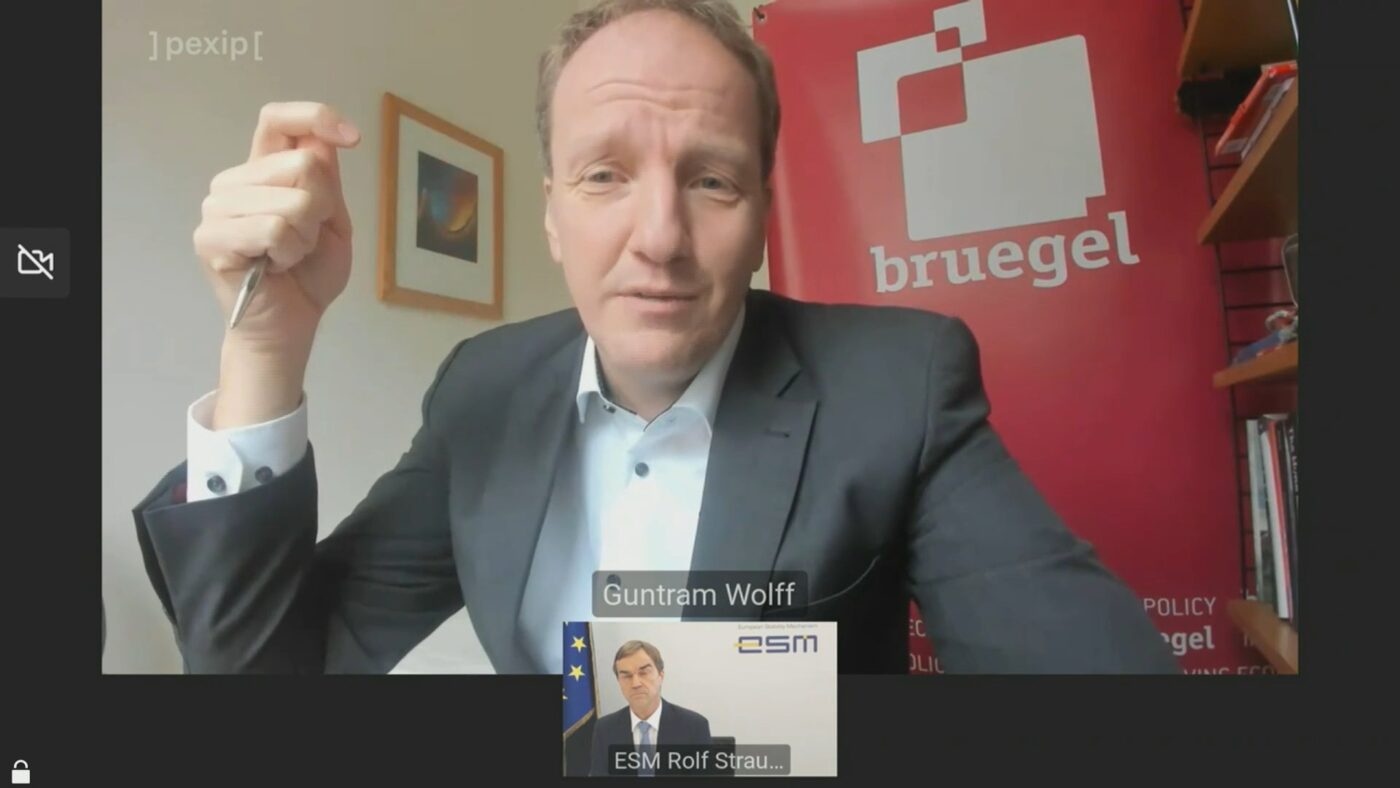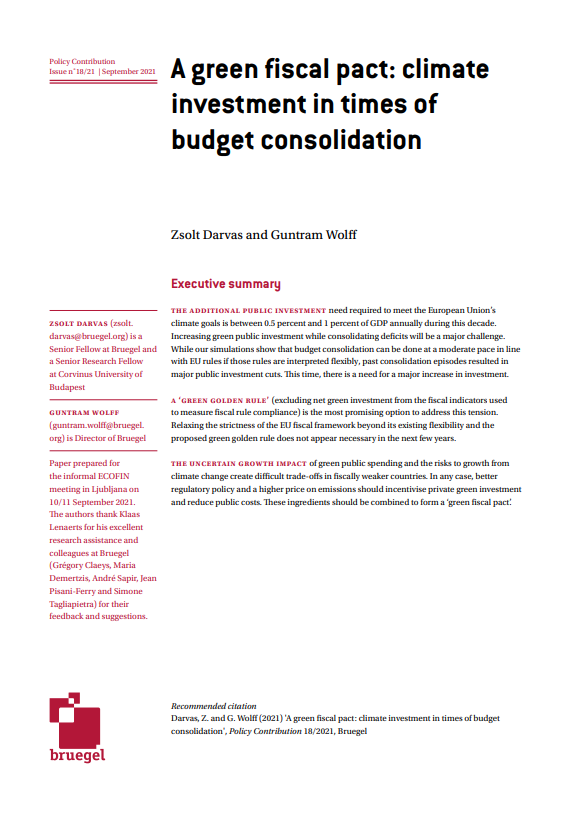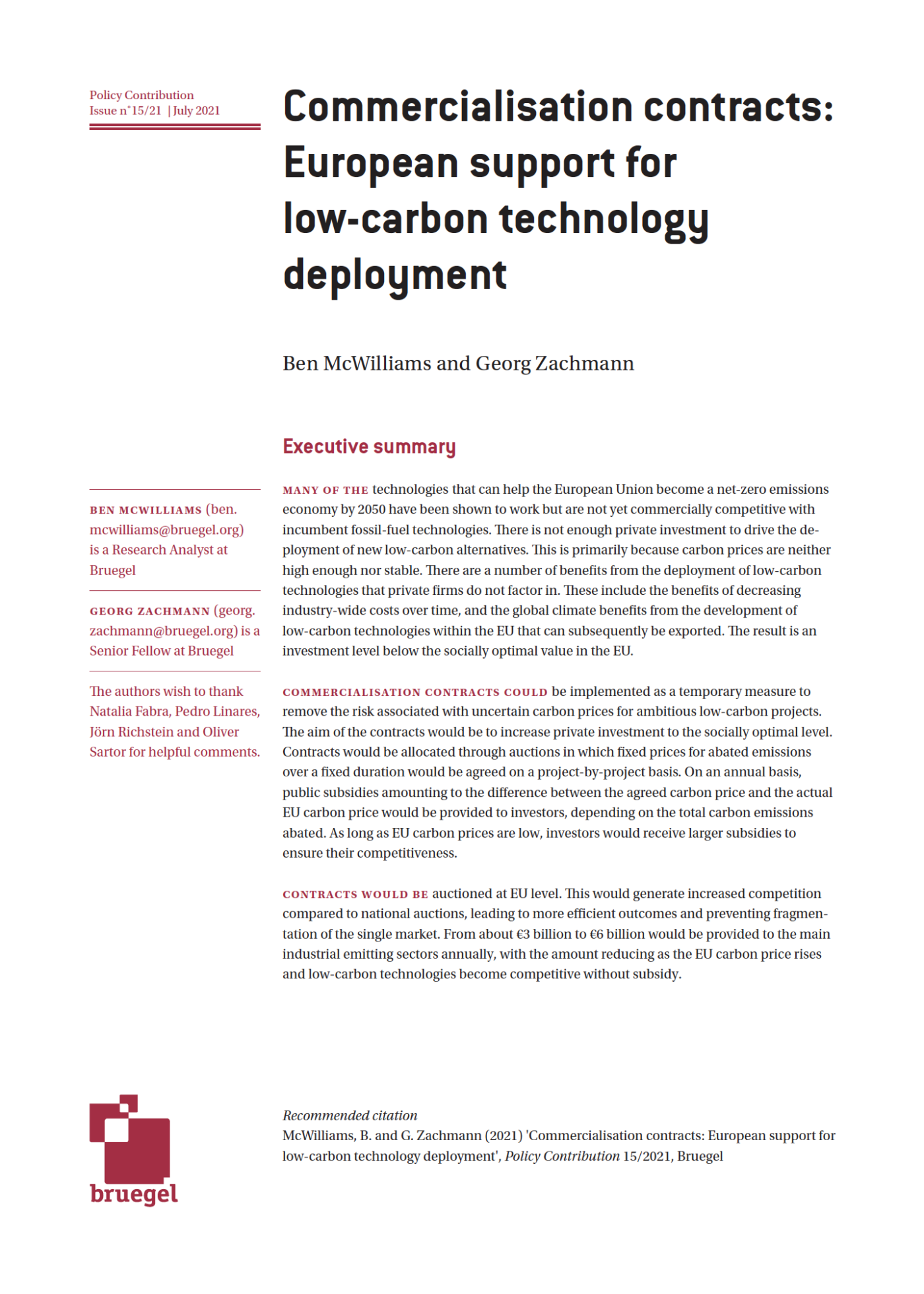Working Paper
What drives national implementation of EU policy recommendations?
The authors use a newly-compiled dataset to investigate whether and why European Union countries implement the economic policy recommendations they receive from the EU.
We use a newly-compiled dataset to investigate whether and why European Union countries implement the economic policy recommendations they receive from the EU. We find that implementation rates are modest and have worsened at a time when the economic environment has improved and market pressure on sovereigns has subsided. Implementation has deteriorated in particular among countries designated as having ‘excessive’ macroeconomic imbalances. We then empirically test three factors that could influence implementation rates: (i) the macroeconomic environment; (ii) pressure from financial markets; and (iii) the strength of EU-level macroeconomic surveillance.
The econometric estimates indicate that larger fiscal and current account deficits and a higher probability of sovereign default increase the likelihood of implementation. However, stronger surveillance under the Macroeconomic Imbalances Procedure (MIP) does not seem to drive implementation rates. The quality of governance, the fragmentation of government coalitions and fewer recommendations received are connected to increased implementation, whereas for countries under the MIP, implementation slowed during election years. Finally, recommendations on financial services have a much greater chance of being implemented, whereas those on broadening the tax base, the long-term sustainability of public finance and pension systems, and competition in services are much less likely to be implemented. Overall, economic fundamentals and political economy factors provide only a small part of the answer to the question of why countries reform: ultimately, reform decisions are down to factors outside of the models.
